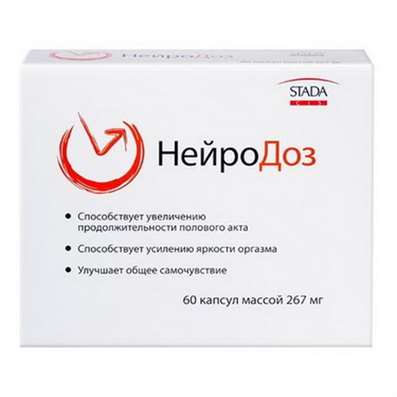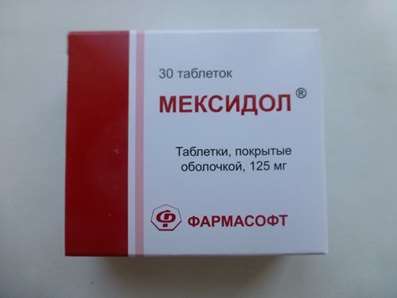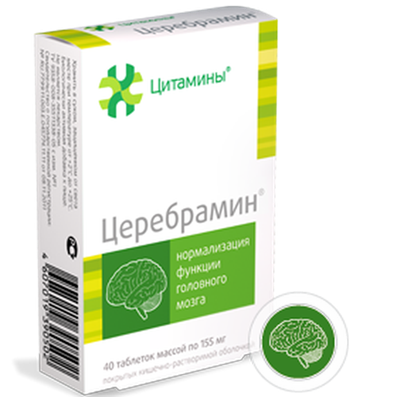Caffeine
09 May 2017
Each of us not once faced with a desire to overcome morning drowsiness or evening drowsiness. In order to cheer up we are already out of habit to reach a glass of strong tea or a cup of coffee. The effect is achieved thanks to the substance contained in these drinks - caffeine. So what is this substance and how does it really affect our body?Caffeine is an alkaloid found in tea leaves (up to 4%), coffee seeds (up to 2%), cola nuts (up to 6%), cocoa beans (up to 4%). As we see, this substance in nature is widely distributed. For medical purposes, however, caffeine is produced synthetically. From a medical point of view, caffeine is a classic psychomotor stimulant. It has the property of exciting the nervous system, reducing the feeling of fatigue, increasing mental activity, driving the dream. However, it should be borne in mind, especially to athletes, that caffeine does not increase physical activity, but, on the contrary, reduces it.The exciting effect of caffeine is related to its ability to block the receptors of the adrenaline-inhibitory mediator of the central nervous system. Caffeine reduces the sensitivity of nerve cells to adrenaline and thus, indirectly, has an exciting effect. Caffeine, however, is able to have a direct and exciting effect. Like other methylxanthines, it blocks the enzyme (phosphodiesterase), which limits the carrying (transfer) of nerve impulses to the cell. As a result, any exciting signal begins to act on the nerve cells more strongly. If caffeine overdo it can develop a pronounced psychomotor agitation (the excitation of the mental and active sphere).At the dawn of this century, caffeine was used in large doses to provoke the symptoms of the disease in mental patients. Simultaneously with the central nervous system, caffeine also stimulates the vegetative (innervating internal organs). The frequency and strength of the heart rate increase, the secretion of gastric juice increases, sweating increases, body temperature rises, etc. Blood pressure does not change, because. Caffeine, although it stimulates the release of vasoconstrictor factors, simultaneously stimulates and ejection of vasodilators. In addition, caffeine has a diuretic effect, which in turn, does not allow for an increase in blood pressure. After taking caffeine (caffeine-containing drinks), you feel better, a feeling of cheerfulness, muscle processes and motor sphere become active. Complex studies of the effect of caffeine on performance showed that after a single intake of it, the concentration of attention and muscular strength manifested at the same time increases. Along with this, all types of endurance decrease and oxygen consumption increases, and this already adversely affects the cardiac muscle. Vessels of the heart can not always provide adequate blood flow and supply the heart with oxygen. The tolerance of high temperatures worsens, but the tolerance of cold improves. This is caused by a sharp increase in the intensity of metabolism. Caffeine somewhat reduces blood coagulability, increases urination, activates the processes of tissue oxidation. This increases the breakdown of glycogen. His stores in the liver and muscles are decreasing. The vessels of the brain, skeletal muscles, heart, kidneys expand. The increase in the breakdown of glycogen leads to an increase in the content of sugar in the blood. Caffeine also has the ability to destroy subcutaneous neutral fat and increase the blood levels of fatty acids. The increase in blood sugar and fatty acids - one of the reasons for the appearance of a feeling of cheerfulness and a surge of energy. It is the fatty acids that get into the blood that cause an increase in heat transfer and an increase in body temperature.
Permanent long-term intake of caffeine blocking inhibitory adenosine receptors causes a response from the body - the formation of new adenosine receptors and the synthesis of more than normal amounts of adenosine. As a result of such an adaptive adjustment of the central nervous system, the caffeine's exciting effect is reduced. Developing addiction, which requires already large doses of caffeine to achieve the same stimulating effect. Sudden abolition of caffeine, taken a long time, leads to the fact that adenosine replaces all receptors. In the central nervous system there is a strong inhibition. There is sluggishness, general depression, drowsiness, nervous depression. Chronic caffeine intake depletes the nervous system. The slowing down of thought processes, the weakening of will power develops, and uncertainty arises in its powers.
The use of caffeine (caffeinated drinks) leads to the formation of physical and mental dependence on this substance.
In view of all of the above, caffeine can not be recommended for permanent daily use as a means of improving performance and endurance. To increase intellectual activity, you can use caffeine, but not more than once in three days and only in the morning. With this method of reception, the possibility of habituation and depletion of the reserves of the nervous system is completely excluded. Morning intake of caffeine allows you to avoid disturbance of daily biorhythms of the human body.
Caffeine in addition to its ability to increase the secretion of gastric and intestinal juices dramatically increases intestinal peristalsis. Promotion of food through the gastrointestinal tract is accelerated. The food does not have time to be completely digested. As a result, putrefactive and fermenting processes in the intestine develop. The protein components of food begin to decay, and carbohydrate components - to wander. For this reason, you should never drink tea or coffee. These drinks should be drunk separately, at least one hour before the main meal. Although even in this case, the progress of food will be accelerated.
Consumption of caffeinated beverages around the world is growing very rapidly. People get used to domestic caffeine-type stimulants very quickly, but they get used to it with great difficulty. Some can not get used to it at all.
The most common caffeinated plant is tea. Its culture is the oldest. More than five thousand years ago, Chinese shepherds noticed that the animals, having smoothed out some shrubbery, became unusually fastidious and mobile. Chinese leaves began to be used as a cure for excessive sleepiness and lethargy. Chinese "cha" means a young leaflet. Chinese monks were preparing tea as a drink, driving away sleep during many days of celebrations and ceremonies.
Gradually, tea began to cultivate as a culture. From China, he penetrated into Japan and Korea, and from there to Indonesia, India and Ceylon. From Ceylon tea has been spread all over the world. There are two kinds of tea as plants: Chinese and Ceylon. All available varieties are their varieties.
In Russia, a tea drink has been consumed since 1638, when the Mongolian Altyn Khan sent 4 poods of tea leaf as a gift to Tsar Mikhail Fyodorovich. The tsarist ambassador at first did not want to accept from the khan as a gift some grass instead of donated sables and gold ornaments. However, at court yard the drink was tried and immediately appreciated. In 1679, the first contract was signed for the supply of tea from China. Since then, the level of tea consumption in Russia has developed only on an ascending line. Due to its ability to mobilize sugar from glycogen depots and fatty acids from the subcutaneous fat layer, tea eliminates hunger and has a warming effect. That is why tea is so popular in places of deprivation of liberty, where a lack of food is often combined with a cold climate.
In coffee grains, the caffeine content is much lower than in tea leaves. A stronger stimulating effect of the coffee drink is explained simply by the large amount of coffee used to make the drink.
Cocoa beans contain very little caffeine. The cocoa drink and chocolate, which are made from cocoa beans, have almost no stimulating effect, but they contain a large amount of fats.
Quite a lot of caffeine in the cola nuts. In total there are about 125 species of cola shrubs. Coca nuts besides caffeine also contain cocaine.
The constant use of caffeinated drinks to stimulate and increase mental performance lead to the same side effects as the intake of pure caffeine. Gradually, addiction develops, which requires the preparation of more and more strong drinks. The cessation of the use of caffeinated beverages leads to the appearance of lethargy and drowsiness, an inability to productive thinking, which is a consequence of the hyperactivity of the braking mechanisms in the central nervous system.
Exhaustion of the nervous system in chronic use of caffeinated beverages accelerates the development of age-related diseases. A number of seriously-minded scientists consider the use of tea and coffee as one of the main causes of the weakening of the health of the population throughout the globe. Such side effects as addiction and depletion of the nervous system can be avoided only if you use them no more than once in three days and only in the morning. A sufficient break between tea or coffee receptions allows nerve cells not only to restore their resources, but even to achieve some supercompensation. Morning reception allows the exciting action of the drink to penetrate into the natural rhythm of the organism's activity.
All caffeinated drinks excrete Vitamin B1 (thiamin) from the body. You can buy vitamin B1.Therefore, when they are used, it is necessary to include a sufficient amount of this vitamin in the diet. It is best to take vitamin B1 in the form of phosphothiamine, in which one phosphorus residue is attached to the thiamine molecule.
Summarizing the above, we can conclude that you can consume caffeinated drinks, but only to the place and by the time.

 Cart
Cart





